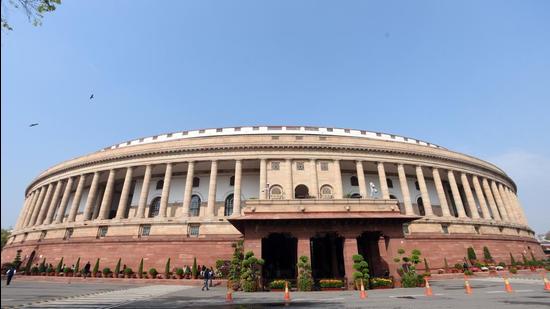Securing the independence of legislative secretariats, the Patel and Naidu way
The Constitution provides for a separate secretariat and separate rules of recruitment of officials for each House. The V-P seems to have fully understood the purpose of this constitutional provision, and has upheld a great tradition
The recent appointment of an in-house officer as the secretary-general of the Rajya Sabha by the Upper House Chair, and vice-president (V-P), M Venkaiah Naidu, is an important step in restoring the independence of the secretariats of Parliament. This issue has roots in the colonial period.

The story begins in 1925 when Vithalbhai Patel, the elder brother of Sardar Patel, was elected the speaker of the Central Legislative Assembly — the first Indian to be elected to this high office. An uncompromising champion of the independence of the office of the speaker, Patel was conscious of the need to have a secretariat that would be independent of the government. Till then, both the Houses of the central legislature were manned and controlled by the secretary to the government in the legislative department.
Recognising that this compromised the independence of the office of the speaker as well as the legislature, Patel convened a conference of the presiding officers in 1926. The conference passed a resolution asking the government to create a separate and independent secretariat. But the British government did not pay heed. Patel presented a comprehensive proposal, which was forwarded by the viceroy’s government to the secretary of state in London. He considered and rejected the proposal.
Also Read | Delhi University has approved FYUP. What does it mean for students?
After this disappointing development, the speaker brought the matter of independent secretariat to the House and declared, “As an elected Speaker I am responsible to the Assembly and to no other authority.” On September 22, 1928, Motilal Nehru moved a resolution in the assembly, seeking to create a separate assembly department. This was adopted unanimously. Finally, the secretary of state relented and the proposal contained in the House Resolution was approved, and, thus an independent secretariat of the central legislative assembly came into existence on January 10, 1929.
In order to perform the role of scrutinising the functioning of the government effectively, Parliament must have a secretariat that is not part of the government. The officers-in-charge of the secretariats should not be beholden to the government for their career progression, nor should they be amenable to any kind of pressure from the government. Since it is the secretariats which help the House perform its constitutional functions, their independence needs to be ensured at all times.
It is here that the importance of the appointment of an in-house officer, who has grown within the system, to the top position in the Rajya Sabha secretariat assumes importance. The independence of secretariats presupposes appointment of officers at all levels, including to the top position, from within the system. The induction of officers, either serving or retired, from the executive branch, to the top positions in the secretariats of the legislature undermines its independence. Long years of service in the government create in them a certain unsuitability to serve the Houses of Parliament, which critically scrutinise executive performance. Their unfamiliarity with the inner dynamics of the House, the institutional memory, centuries of accumulated wisdom of the House is an undeniable fact.
That is why, in a departure from the practice followed in the Rajya Sabha for some time now, the V-P did not choose an officer from the executive as secretary-general, but one from within. This action has, at once, put V-P Naidu in the league of Vithalbhai Patel and other eminent leaders who scrupulously guarded the independence of the legislature.
Contemporary politicians are often not aware of the history of the struggles waged by Patel and others to secure the independence of the legislature. But it isn’t just history. The Constitution provides for a separate secretariat and separate rules of recruitment of officials for each House. It mandates that the officials who man the secretariats shall be different from those who man the executive. For this, a separate provision, namely, Article 98 was incorporated in the Constitution. The V-P seems to have fully understood the purpose of this constitutional provision, and has upheld a great tradition.
PDT Achary is former secretary general, Lok Sabha
The views expressed are personal
All Access.
One Subscription.
Get 360° coverage—from daily headlines
to 100 year archives.



HT App & Website






